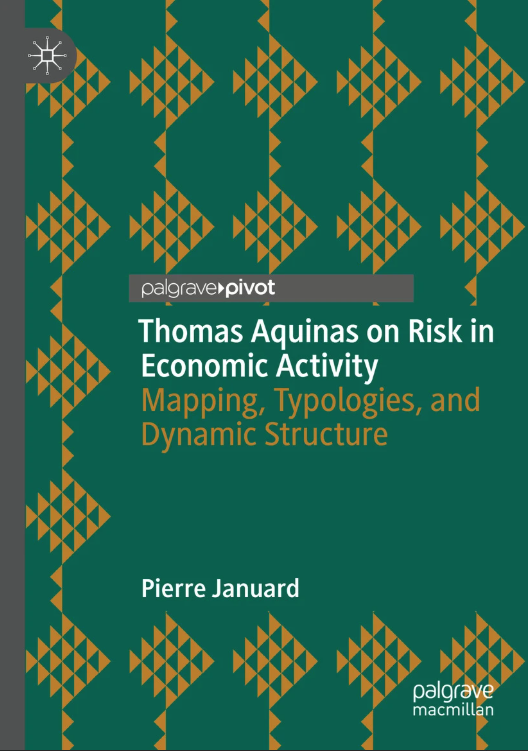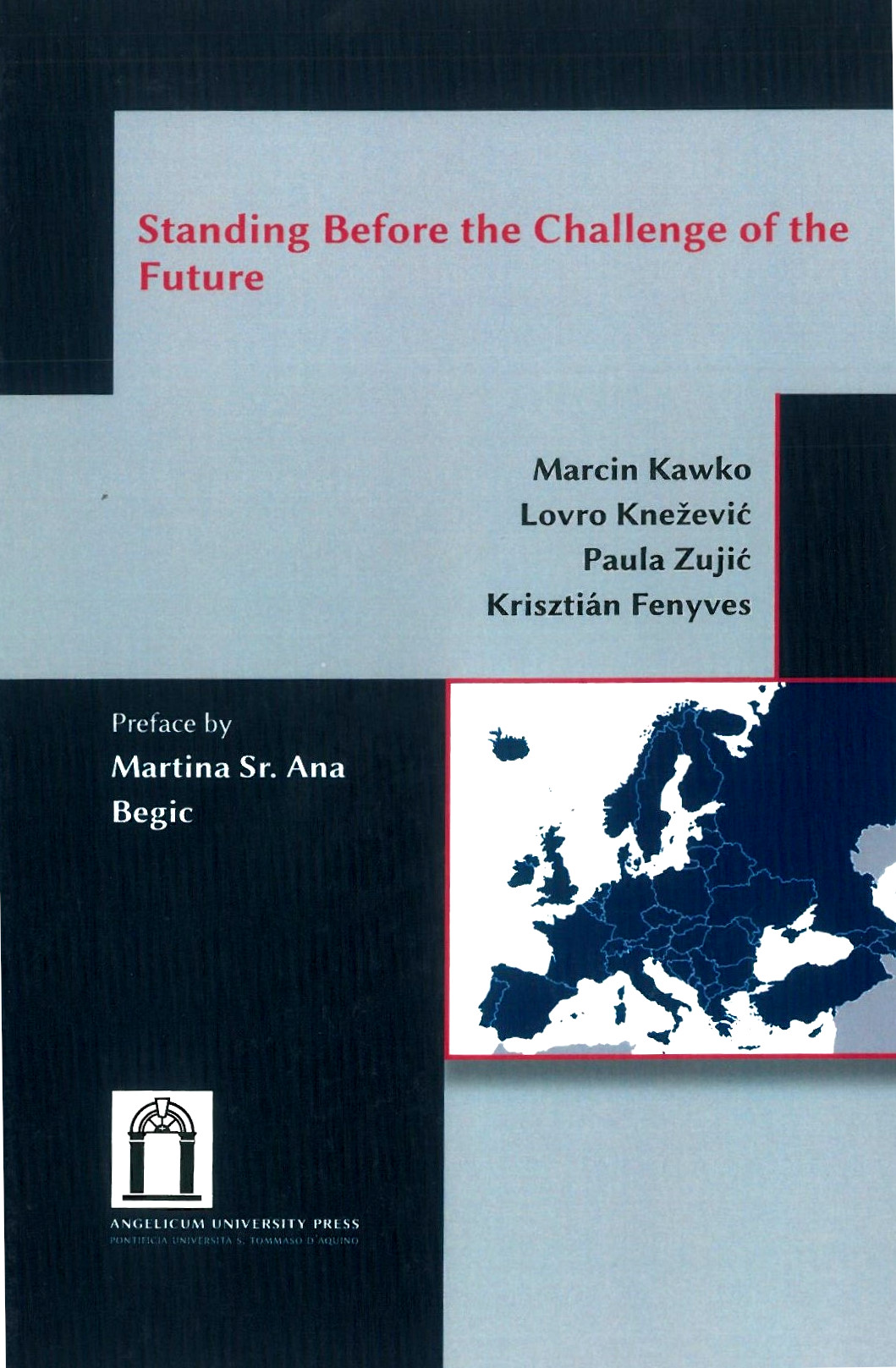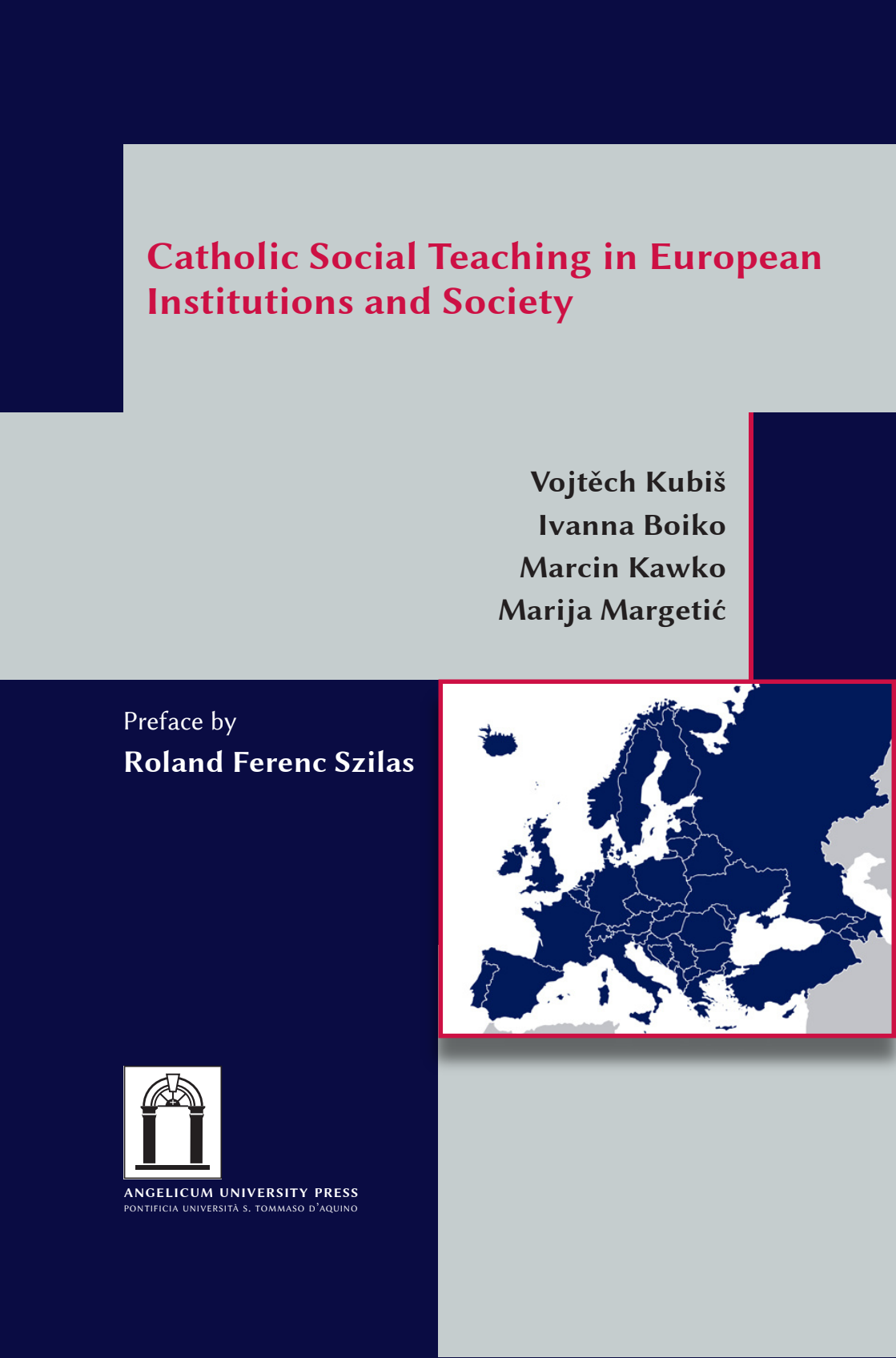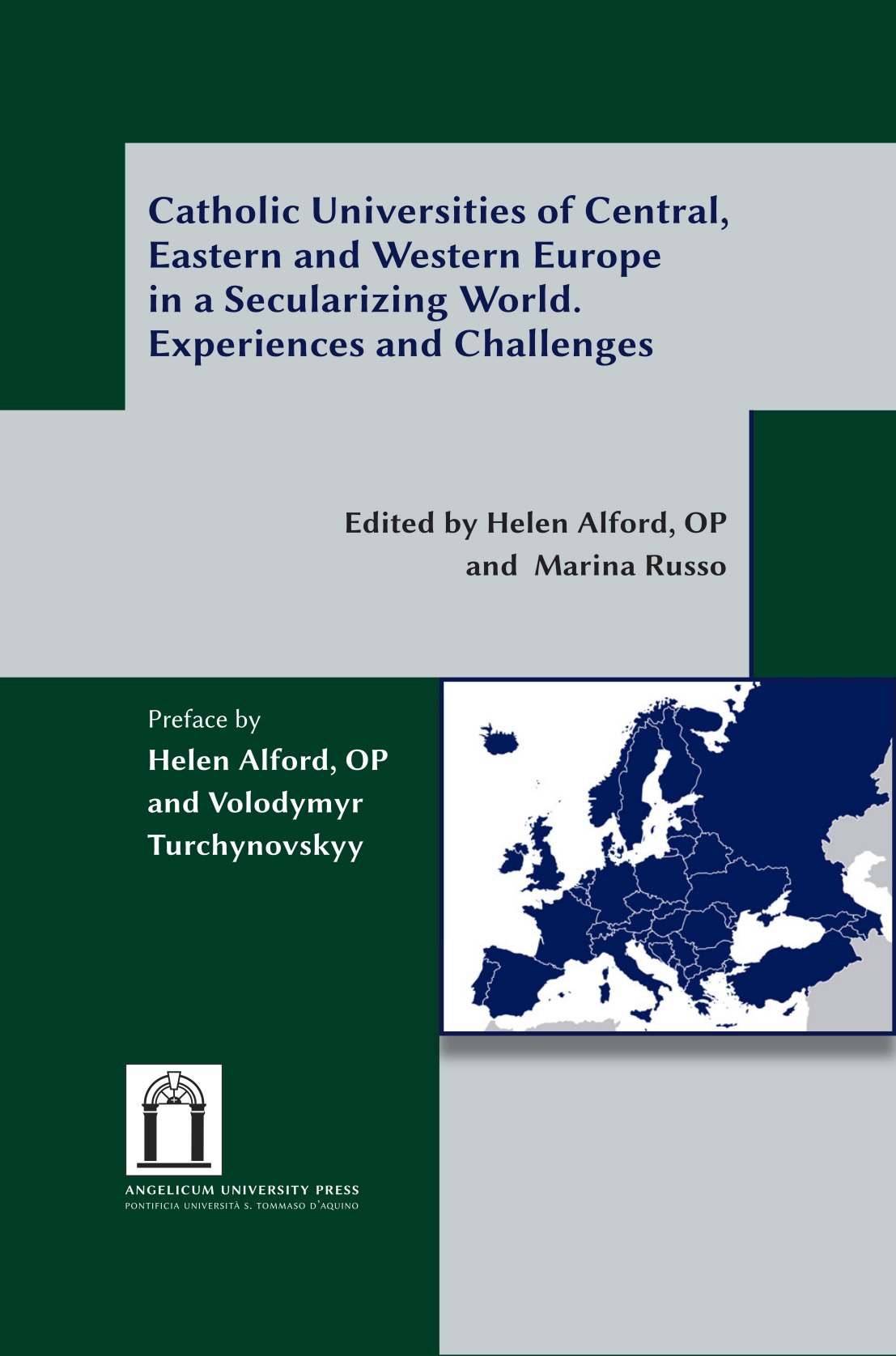 In his lecture on Faith, Reason and the University, delivered in Regensburg on September 12, 2006, Pope Benedict XVI affirmed that the inner rapprochement of Biblical faith, Greek philosophy, and the Roman heritage are the foundations of European culture and of culture in general. At the same time, he affirmed that the world’s profoundly religious cultures see the exclusion of the divine from the universality of reason as an attack on their most profound convictions. The Pope’s words on that occasion seemed to echo Christopher H. Dawson’s main postulate. A late nineteenth to mid-twentieth century English historian, Dawson’s main contention was that the religious impulse supplies the cohesive force which unifies a society and a culture. Thus, a society which has lost its religion becomes sooner or later a society which has lost its culture.
In his lecture on Faith, Reason and the University, delivered in Regensburg on September 12, 2006, Pope Benedict XVI affirmed that the inner rapprochement of Biblical faith, Greek philosophy, and the Roman heritage are the foundations of European culture and of culture in general. At the same time, he affirmed that the world’s profoundly religious cultures see the exclusion of the divine from the universality of reason as an attack on their most profound convictions. The Pope’s words on that occasion seemed to echo Christopher H. Dawson’s main postulate. A late nineteenth to mid-twentieth century English historian, Dawson’s main contention was that the religious impulse supplies the cohesive force which unifies a society and a culture. Thus, a society which has lost its religion becomes sooner or later a society which has lost its culture.
Christopher Dawson was born in 1889 in Hay Castle, England. He studied History and Sociology at Oxford University and briefly in Sweden. His study of history lead him to his conversion from Anglicanism to Catholicism in 1914. He married Valery Mills in 1916 and henceforth devoted his time to reading and writing history while enjoying life in the countryside. He lectured sporadically at some of the best universities both in England and in the United States until 1958, the year in which he assumed the Chair of Roman Catholic studies at Harvard Divinity School. He died in May 1970, after having returned to England due to poor health. Dawson’s best writings were devoted to the development and exposition of his idea of the nature of Christianity (Christendom) and its connection with culture(s) and their corresponding history and institutions. His scholarly work was prolific, capacious, innovative and incisive, especially those devoted to social criticism and against totalitarianism. His main emphasis, however, was the need to recover the spiritual tradition that lies at the root of Western European history.
Dawson?s main insights are dutifully presented and are proposed as a sound corrective to what Anthony R. Frontiero perceives as a prevalent ethical relativism in our time. Frontiero’s doctoral dissertation has a twofold goal: to examine the phenomenon of ethical relativism and the principle of the common good as developed from Christopher Dawson’s Catholic perspective and to contribute to contemporary moral discourse by highlighting the Catholic principle of the common good as a means of building a community of justice, peace and joy.
In the first chapter of his work Frontiero presents an overview of Dawson’s thought. In a straight-forward manner, he introduces the reader to Dawson’s foundational concept: that religion is the key to history and thus, an understanding of the inner workings of society and its cultural achievements is contingent upon understanding the religious beliefs that shape a particular community. In other words, Dawson’s historical chronology posits that the transcendent infuses history with a wider and richer interpretation of human events. Dawson?s insight has been harshly criticized as utopian and as a reactionary nostalgia for some sort of dubious ‘Constantinianism.’ However, the reader should not forget that Dawson’s world-view is fundamentally Christocentric and that for him human history can only be truly understood in light of both the Incarnation and the final Eschaton.
The second chapter is an in-depth examination of the rise of secularism and its main offspring: the phenomena of cultural and ethical relativism. In Frontiero’s view, both secularism and cultural and ethical relativism have given way to the ‘schizophrenic’ dynamics of modern culture, which are caused by the loss of an authentic, unifying spiritual force. Frontiero aptly balances his criticism by highlighting some essentially good elements associated with the continuum of secularity, such as the separation of church and state, the articulation of human rights, the matter of jurisdiction and validity of marriage, and the particular shifts that came about over the right to religious liberty. Nevertheless, he reiterates Dawson?s call for a new evangelization, due to the tremendous need for a great spiritual change in modern secular culture. This new evangelization is to be overtaken by the Catholic Church in order to witness to truth, justice and love as revealed in Jesus Christ. Such a witness should succeed in restoring the spiritual unity – not necessarily the former ecclesial-political structures – that is essential for an authentic human culture to flourish.
The third chapter proposes a via media between secularism and ‘Constantinianism’ toward the goal of a Western and world culture re-evangelized and re-unified in Christ. In order to achieve this goal, this chapter endeavors to examine the development of the principle of the common good in the Catholic Tradition, as presented in the thought of Augustine and Thomas Aquinas. A brief analysis of the thought of Jacques Maritain is also presented, especially with regards to the treatment of the common good and the problems associated with human progress in culture, as well as the vital role of the Church in bringing about a hopeful future. This chapter offers the reader compelling arguments against relativism and in favor of moral absolutes, as well as different theories of the common good. A thought-provoking argument that favors the incorporation of human rights into the very notion of common good, based on the Catholic understanding of the nature of personhood and human dignity, is worth noting.
Frontiero presents the future hope and challenge offered by Dawson’s thought in the fourth and last chapter of his work. He begins by looking into the economy of the sacraments, which Dawson claimed as one of the principal causes of the unique combination of universality and individuality of Catholicism. Then, he further elucidates Dawson’s proposal to ‘desecularize’ culture by means of a spiritual revival of the whole system, as well as by witnessing to a clearly distinctive Christian ethics which reflects the overall relationship between faith and ethics. This ‘desecularization’ can only happen with the aid of the Holy Spirit, who can break down any obstacles and overcome the most elaborate defenses that human ingenuity can devise. Finally, Frontiero endeavors to articulate some key points on just how Dawson’s thought speaks to the contemporary relativistic culture. In particular, how, through his unique historical perspective and deep appreciation for the Catholic intellectual tradition, Christopher Dawson offers an important and intelligible point of reference for ethical discernment today, one that can appeal to both Christians and non-Christians alike.
Frontiero’s well researched and written work presents Dawson’s thought as clearly meta-historical and eschatological in character, but rooted in long years of anthropological, historical, philosophical, sociological and even theological research and discovered data. After reading Frontiero’s work the reader can appreciate how Dawson’s statements are faith-filled and yet, profoundly concrete. His proposals exude realism impregnated with faith: unrestrained human will and freedom can cause the frustration of the optimum collaboration between religion and culture. Thus, a graced conversion and a humanistic education that helps the person to use the mind and exercise the will in the right employ of freedom are paramount to Frontiero’s (and Dawson’s) proposal.
Frontiero’s proposal both follows and further develops Dawson’s main insights in chapters three and four of his dissertation,. The use of the category of ‘common good’ provides a viable framework in shoring up the moral intuition to respond in a coherent, unified manner to the ethical dilemmas of our time, particularly in the face of ethical relativism. In Frontiero’s thought, Christian unity and universality which are lived out in the Sacraments and in the life of prayer and contemplation are antidotes to the individualism and moral relativism of our time.
In other words, Frontiero believes that a graced conversion that allows us to embrace the Church not mainly as a structure, but as a community of believers who live and act in communion with God, in Christ, through the Holy Spirit, is what is most needed in a time of secularism and relativism. In concrete terms, Frontiero posits that the recovery of spiritual faculties (graced, individual conversion) and education reform (liberal arts education rooted in Christian humanism, which promotes true universalism) are tangible ways to bring about a new order of things.
Frontiero’s proposal stresses the fact that the people of God, the Church, have the power to bring about the development of ideas, organizations, and institutions that contribute to human advancement, through works of charity and justice for the evolution of the social, political, and economic forms that serve the common good of humanity. Thus, this ‘new order’ can be realized if Catholics are able to permeate the whole of reality and history with sound cultural, philosophical, historical, social, political, economic, and artistic conceptions.
social, political, economic, and artistic conceptions.
Is this vision too naive? Too utopian? According to both Dawson and Frontiero the answer cannot be but a resounding: ‘no!’ The final quote of Frontiero’s work is categorical in its certitude: “. . . Come ye blessed of my Father, posses the kingdom prepared for you from the foundation of the world. For I was hungry, and you gave me to eat; I was thirsty and you gave me to drink; I was a stranger, and you took me in; naked and you covered me; sick and you visited me; I was in prison, and you came to me. . . . Amen I say to you, as long as you did it to one of these my least brethren, you did it to me.”
 IT
IT  EN
EN 
















